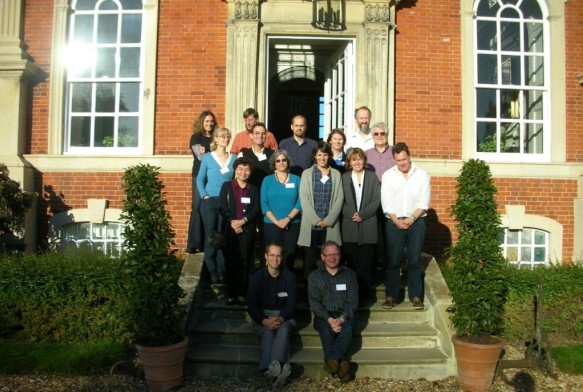The natural world is changing as never before as a consequence of human activities, and there is widespread concern about the rate at which biodiversity is being lost. One of the best ways to track changes in biodiversity through time is by the analysis of ecological time series. These time series provide information on the species present at a locality at known points in time.
In October 2010 Anne and Maria hosted a meeting at the Royal Society International Kavli Centre. The goal of this meeting was to brainstorm about the challenges and opportunities involved in analyzing biodiversity time series. The meeting included the presence of Steve Buckland, Anne Chao, Robin Chazdon, Rob Colwell, Tom Curtis, Kevin Gaston, Nick Gotelli, Matt Kosnik, Brian McGill, Jenny McCune, Hélène Morlon, Pete Mumby, Lise Ovreas, Angelika Studeny and Mark Vellend. This meeting was the starting point for a collaboration which led to the paper recently published on the Proceedings of the Royal Society –B.

In this paper we provide an overview of the opportunities presented by ecological time series, and offer advice on how to deal with the distinctive statistical challenges that they raise. For example, we consider how to deal with data sets that lack physical boundaries or where the interval between censuses varies. The paper concludes by appealing to the deposition of data into public databases and highlighting the approaches and potential pitfalls in forecasting biodiversity change.
The research, published by the journal Proceedings of the Royal Society –B , was funded by the European Research Council.
Citation: Dornelas M., Magurran A.E., Buckland S.T., Chao A., Chazdon R.L., Colwell R.K., Curtis T., Gaston K.J., Gotelli N.J., Kosnik M.A., McGill B., McCune J.L., Morlon H., Mumby P.J., Ovreas L., Studeny A. & Vellend M. Quantifying temporal change in biodiversity: challenges and opportunities. Proceedings of the Royal Society B: Biological Sciences.
